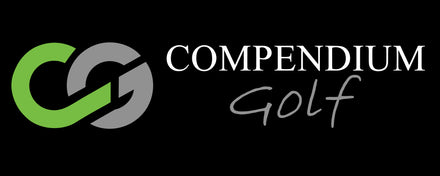In the world of golf, the quest for the perfect swing often involves not just technique but also the equipment. Golf clubs, in particular, are crucial tools that can significantly impact a player's performance on the course. While the allure of shiny new clubs straight from the factory may be tempting, there are compelling reasons why buying used golf clubs can offer substantial advantages. This blog explores the myriad benefits of opting for pre-owned golf clubs over their brand-new counterparts, encompassing aspects of cost-effectiveness, sustainability, customization opportunities, and overall value for golf enthusiasts.
Cost-Effectiveness: One of the most apparent advantages of purchasing used golf clubs lies in the significant cost savings it offers. Golf equipment, particularly high-quality clubs, can often come with a hefty price tag when bought new. However, opting for used clubs can provide access to top-tier brands and models at a fraction of the cost. For beginners or those looking to experiment with different club types without breaking the bank, buying used allows for affordability without compromising on quality.
Moreover, the depreciation of golf clubs is relatively rapid, meaning that the difference in performance between a new and gently used club may be negligible. By capitalizing on this depreciation, golfers can acquire clubs that are still in excellent condition but at a significantly reduced price compared to their new counterparts. This cost-effectiveness extends not only to individual clubs but also to entire sets, enabling golfers to assemble a complete arsenal of clubs without draining their wallets.
Sustainability: In recent years, there has been a growing emphasis on sustainability across various industries, including sports and recreation. Opting for used golf clubs aligns with the principles of sustainability by extending the lifespan of existing equipment and reducing the demand for new manufacturing. Every year, millions of tons of waste are generated by the disposal of perfectly usable goods, including golf clubs. By choosing to buy used, golfers can contribute to the reduction of waste and environmental impact associated with the production and disposal of new clubs.
Furthermore, the production of new golf clubs involves the consumption of resources such as raw materials, energy, and water, contributing to carbon emissions and environmental degradation. By purchasing used clubs, golfers can minimize their carbon footprint and conserve natural resources by extending the lifecycle of existing products. This environmentally conscious approach not only benefits the planet but also promotes a sense of responsibility and stewardship within the golfing community.
Customization Opportunities: Another compelling aspect of buying used golf clubs is the opportunity for customization and personalization. Unlike purchasing new clubs, where options may be limited to stock configurations, buying used allows golfers to explore a wider range of brands, models, and specifications. This variety opens up possibilities for golfers to fine-tune their equipment to suit their individual preferences and playing style.
For instance, golfers can mix and match clubs from different manufacturers to create a tailored set that maximizes performance across various aspects of the game. Additionally, used clubs often come with modifications or aftermarket upgrades installed by previous owners, providing additional customization options without the need for costly aftermarket purchases. Whether it's adjusting shaft stiffness, altering club length, or experimenting with different grip types, buying used empowers golfers to create a bespoke set of clubs optimized for their unique needs and preferences.
Value Retention: Contrary to popular belief, the value of golf clubs does not depreciate linearly over time. While new clubs may experience a significant initial drop in value upon purchase, the rate of depreciation tends to stabilize for used clubs, especially those in good condition from reputable brands. This phenomenon is particularly evident for classic or sought-after models, which may retain or even appreciate in value over time due to factors such as rarity, historical significance, or collector appeal.
For savvy golfers, buying used represents an opportunity to not only acquire high-quality equipment at a lower cost but also potentially benefit from the value retention of certain clubs. By carefully selecting used clubs based on factors such as brand reputation, model year, and condition, golfers can make strategic investments that hold their value well into the future. This value retention aspect adds an additional layer of financial security and potential return on investment for those looking beyond the immediate benefits of cost savings.
Quality Assurance: Contrary to common misconceptions, buying used golf clubs does not necessarily mean sacrificing quality or performance. In fact, many pre-owned clubs are in excellent condition, having been well-maintained and lightly used by their previous owners. Reputable sellers, such as certified resellers or pro shops, often inspect and refurbish used clubs to ensure they meet high standards of quality and playability before resale.
Additionally, buying used allows golfers to benefit from the wealth of user reviews and feedback available for established club models. Unlike new releases that lack real-world testing and feedback, used clubs have often been thoroughly vetted by countless golfers, providing valuable insights into their performance, durability, and suitability for different skill levels. This collective knowledge enables golfers to make informed decisions based on empirical evidence rather than marketing hype, resulting in a higher likelihood of satisfaction with their purchase.
Conclusion: In conclusion, the decision to buy used golf clubs offers a multitude of benefits that extend far beyond mere cost savings. From promoting sustainability and environmental responsibility to unlocking customization opportunities and potential value retention, purchasing pre-owned clubs represents a smart and conscientious choice for golfers of all levels. By embracing the principles of affordability, sustainability, and quality assurance, golf enthusiasts can enjoy the thrill of the game while minimizing their ecological footprint and maximizing the value of their equipment. In an era where conscious consumerism is gaining momentum, buying used golf clubs emerges as a winning proposition that combines economic sensibility with environmental stewardship, ensuring a brighter future for both golfers and the planet alike.

